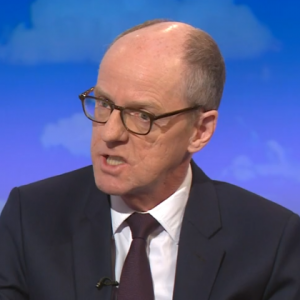The Department for Education (DfE) has been slammed by a group of MPs for its lack of “leadership or urgency” in dealing with teacher supply issues — with a scathing new report stating the department “does not understand or show curiosity about shortages”.
The “Training New Teachers” report published by the public accounts committee (PAC) today warned that the government has “no plan” for how it will meet teacher training targets in the future, despite having missed targets for the past four years.
The report comes on the back of a similarly scathing National Audit Office (NAO) study into teacher recruitment in February, which revealed a series of weaknesses in the government’s strategy.
Today’s report has now made seven recommendations for the DfE to address its issues – including launching an urgent review of teacher training.
Meg Hillier MP, PAC chair (pictured above), said: “Training teachers is too important to get wrong but the Government has taken too little responsibility for getting it right.
The DfE has remained woefully aloof
“The [DfE] has repeatedly missed its target to fill training places. At the same time, it has remained woefully aloof from concerns raised by frontline staff and freely available evidence.”
Hiller said the department takes comfort from national statistics, but pays “insufficient heed to the fact that teaching happens locally, in individual schools” – something also raised during an education select committee this week.
“It is a basic point but one worth spelling out for the government’s benefit: variations in the supply and quality of teachers at local level can significantly affect pupils’ educational attainment and life prospects.”
Schools minister Nick Gibb (pictured below) has come under fire for previously refusing to call problems within teacher recruitment a “crisis”, but has recognised there is a problem.
 In response to today’s report, Gibb said he “simply did not recognise this picture” and will respond more fully in due course.
In response to today’s report, Gibb said he “simply did not recognise this picture” and will respond more fully in due course.
The report said: “From its national vantage point the department does not understand, and shows little curiosity about, the size and extent of teacher shortages around the country and assumes headteachers will deal with gaps. Despite repeatedly missing its targets, the department shows no sense of leadership or urgency in making sure there are sufficient new teachers to meet schools’ future needs.”
Calling out how complicated the routes into training are, the committee has asked the DfE and National College for Teaching and Leadership (NCTL) to provide “clearer, more accessible information” – such as cost and quality of training providers from this autumn.
The report also notes that 18 per cent of lessons in English Baccalaureate subjects are taught by non-specialists, a 4 percentage point increase from 2010. The committee has asked the DfE to inform them of the extent and impact of teachers taking lessons they are not qualified in by the end of August.
The impact of a £1 billion bursary scheme has also been called into question, a point which was also raised by the NAO’s audit manager at an education select committee hearing on Wednesday.
The PAC report asks the government “as a matter of urgency” to “evaluate properly” the incentives and whether such payments lead to “more, better quality teacher” or if the money could be better spent in other ways, such as on initiatives to retain staff.
The report has been widely welcomed, including from unions and the teacher training sector.
Malcolm Trobe, interim general secretary of the Association of School and College Leaders, said the report should be a “wake-up call” for the DfE, adding: “We have repeatedly warned about the scale and severity of this problem. While the government has belatedly taken some action to address this situation its measures do not go far enough or fast enough.”
 James Noble-Rogers (pictured right), executive director of the Universities Council for the Education of Teachers, said: “The government must do more to protect the teacher education supply base by allocating training places to universities in a way that will allow them to plan strategically over a number of years.
James Noble-Rogers (pictured right), executive director of the Universities Council for the Education of Teachers, said: “The government must do more to protect the teacher education supply base by allocating training places to universities in a way that will allow them to plan strategically over a number of years.
“Universities have an excellent track record of supplying schools with the new teachers they need, and yet their contribution us often undermined rather than nurtured.”
Hillier added: “The department will likely point out it has published a white paper proposing further changes to training.
“In response, we would say this is far from a guarantee of results and it remains to be seen if it leads to action that addresses some or indeed any of our concerns.”
Gibb said: “We know there are some local challenges, the truth is despite rising pupil numbers and the competitive jobs market a stronger economy has created, more people are entering the teaching profession than leaving it, there are 13,100 more teachers today than when we came to office and the ratio of teachers to pupils is stable with more teachers also choosing to come back to the classroom.
“All of this is thanks to an aggressive and concerted approach to teacher recruitment including high profile media campaigns, new routes into teaching and generous bursaries.”
Schools Week has provided a round up of the PAC’s recommendations.
Save







Of all the roles that the DfE has there are 2 which are the most basic and which cannot be done by anyone else. These should be the priorities for the department.
1) Make sure there are enough suitably trained teachers.
2) Make sure there are enough school places.
Instead the priorities of Mr Gibb seem to be around forcing 10 year olds to analyse the grammar in a piece of text.
Stop meddling around the edges Mr Gibb and listen to the teaching profession. Do a proper job delivering the basic infrastructure, and leave the teachers to do the teaching.